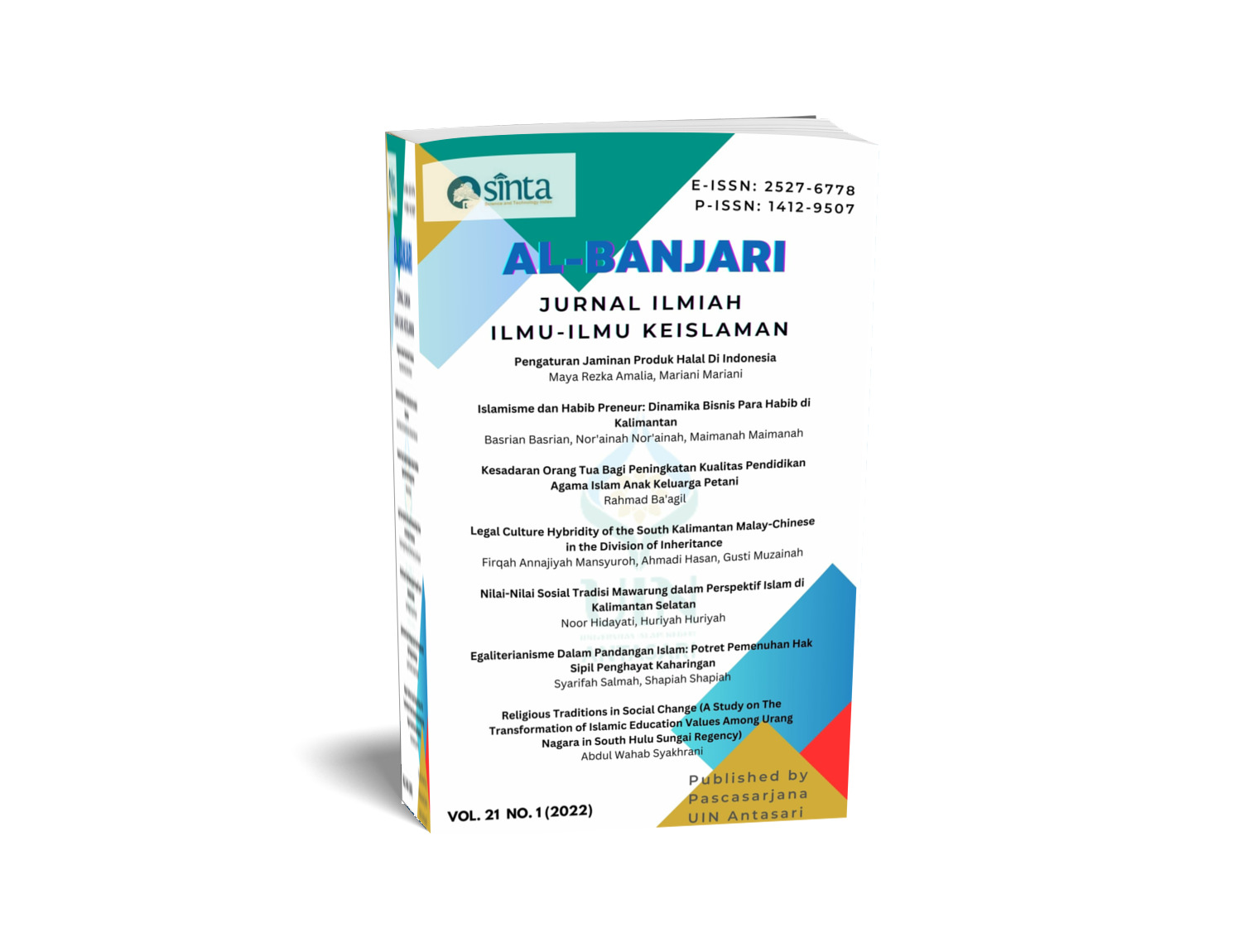The Development Strategy Of Mosque-Based Sharia Cooperatives By The Sharia Business Incubation Center (Pinbas) Of The Indonesian Ulema Council Of South Kalimantan
DOI:
https://doi.org/10.18592/albanjari.v21i1.12502Abstract
Many ways can be done to develop the economic potential that exists in the community, one of which is by establishing a Sharia Cooperative. The Indonesian Ulema Council of South Kalimantan (MUI Kal-Sel) considers that the welfare of the people will increase if the potential possessed by Islamic cooperatives is developed properly and correctly. Therefore, MUI Kal-Sel through its institution, namely the Pusat Inkubasi Bisnis Syariah (PINBAS) seeks to realize this by conducting various activities that can motivate people to want to establish Islamic cooperatives. PINBAS Kal-Sel considers that the mosque is a gathering place for Muslims and has a clear and large mass so that the potential it has is very large for the economic development of the people if each mosque can establish and manage Sharia Cooperatives. On this basis, this study aims to determine the development strategy of mosque-based Islamic cooperatives by the Pusat Inkubasi Bisnis Syariah (PINBAS) of the Indonesian Ulema Council of South Kalimantan as well as the strengths, weaknesses, threats and opportunities of these strategies. This type of research is field research or field research and is descriptive in nature. The data sources in this research come from informants and documents and are collected using interview techniques and documentary studies. The data obtained is then processed with editing, categorization and interpretation techniques. The data obtained is then analyzed qualitatively descriptive. The development strategy of mosque-based Islamic cooperatives by the Pusat Inkubasi Bisnis Syariah (PINBAS) of the Indonesian Ulema Council of South Kalimantan can be seen in three aspects, namely aspects of planning, implementation and evaluation. There are three strength factors, 4 weakness factors, five opportunity factors and two threat factors that influence the selection of mosque-based Islamic cooperative development strategies by the Pusat Inkubasi Bisnis Syariah (PINBAS) of the Indonesian Ulema Council of South Kalimantan.Downloads
Published
2022-04-13
Issue
Section
Articles
License

This work is licensed under a Creative Commons Attribution-ShareAlike 4.0 International License.
Authors who publish with this journal agree to the following terms:
- Authors retain copyright and grant the journal right of first publication with the work simultaneously licensed under a Creative Commons Attribution License that allows others to share the work with an acknowledgement of the work's authorship and initial publication in this journal.
- Authors are able to enter into separate, additional contractual arrangements for the non-exclusive distribution of the journal's published version of the work (e.g., post it to an institutional repository or publish it in a book), with an acknowledgement of its initial publication in this journal.
- Authors are permitted and encouraged to post their work online (e.g., in institutional repositories or on their website) prior to and during the submission process, as it can lead to productive exchanges, as well as earlier and greater citation of published work (See The Effect of Open Access).


































